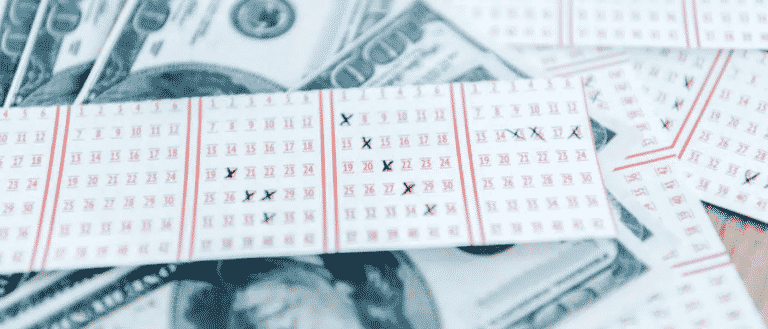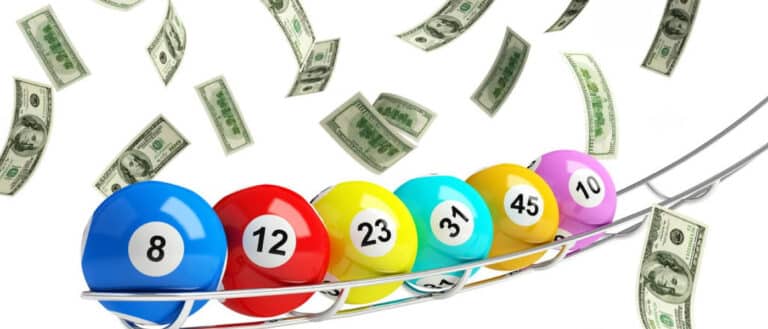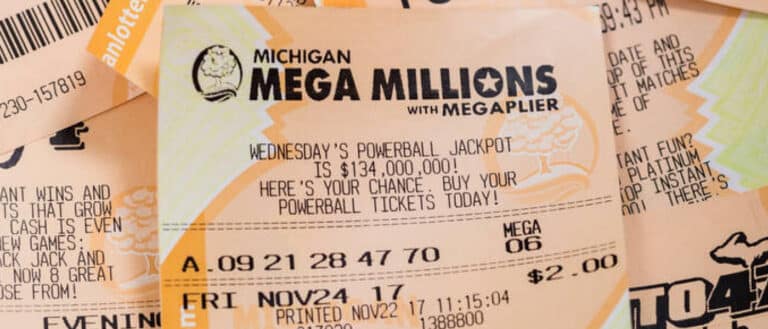Jackpocket CEO Talks iLottery Expansion, Competitors, And Compliance
USLottery recently spoke with Jackpocket CEO Peter Sullivan to get his take on several topics of interest in the lottery space, including the current state of the lottery courier industry and what it means to be a good partner with state lotteries.
Jackpocket is an online lottery courier service operating in ten locales in the US. The Jackpocket mobile lottery app allows customers to register an account and purchase verified lottery tickets.
The Current Landscape
USLottery: You’re currently active in nine states plus the District of Columbia. What are your overall experiences in these locales?
Peter Sullivan: First and foremost, we’ve sought to be a compliant, productive partner everywhere we operate. Innovating within the confines of state government is always challenging. We think it’s important to meet state lotteries where they are currently with their policy considerations and not try to skip several steps to some idealized version of what things could look like several years down the road.
That approach has served us well. Whether it’s being the only business of our kind that has earned the privilege to be an associate member of NASPL (North American Association of State and Provincial Lotteries) or receiving the iCAP certification from the National Council on Problem Gambling, we view strict compliance and adherence to regulations as a source of strength, not a burden.
As the only courier service regulated in both New York and New Jersey, we’re proud to be able to export that model everywhere we operate in a way that gives consumers, lotteries, regulators, and policymakers confidence in the service we provide.
Measuring Success
USLottery: Is the app more successful in certain states?
Peter Sullivan: Like any venture-backed company, we’re compelled to make decisions based on the financial resources available to us. There are many variables to account for in each state that factor into our success, but ultimately the main driver is the resources that we’re able to commit to a market.
It’s fair to say that we feel a strong responsibility to place a significant focus on our regulated markets because of the time and effort that went into developing the policies that govern our business there and the operational efficiencies offered by formal regulation.
Each state’s lottery culture also plays a large part in our relative success. The primary service that we offer allows our customers to place orders for draw games, so naturally, states with a strong affinity for those games, such as New York and New Jersey, tend to fare better on a relative basis than a state like Oregon that has made a strong commitment to deploying video-lottery terminals across the state.
However, those trends don’t always hold true. In a state like Texas that has historically been predominantly considered a “scratch-off state” due to the overall lack of gaming opportunities that have helped boost those sales over time, our product has been very well received on both a relative and absolute basis.
Lessons Learned
USLottery: As a pioneer, there are always barriers to break down. What lessons have you learned along the way?
Peter Sullivan: There are no shortcuts – you have to put in the work with each lottery, regulatory/policy-making body, and stakeholder community to educate them about the advantages and flexibility of our approach.
With 46 separate US state lotteries, each successive interaction is another audition and opportunity to do what’s right. That doesn’t mean that reasonable people can’t disagree. Indeed some have, and will continue to do so. What we’ve been determined to prevent from happening is to allow those differences of opinion that do arise to cloud our focus on consumer protections and compliance as a first priority, as well as our commitment to being a good partner with each lottery that we’re operating alongside.
Transparency is the key to that approach. We pride ourselves in being the only business of our kind that can provide lotteries with an end-to-end auditable record of every transaction that occurs on our platform. We believe that the confidence shown in us from both lotteries and consumers is derived directly from that transparency.
Where Jackpocket Is Coming Soon
USLottery: Can we expect to see the Jackpocket app live in other states?
Peter Sullivan: Absolutely. We have 7-8 states on our roadmap that we’re targeting to launch over the course of the next 6-12 months. In addition to new states, also be on the lookout for some new product offerings and features within the app as well. We’re constantly striving to make it more convenient and appealing to play the lottery for both traditional users and the younger, tech-savvy generation of players that we’ve been able to attract by building a mobile-first product that meets their lofty expectations.
The Importance of Compliance
USLottery: Jackpocket has placed a premium on regulatory approval, whereas some of your competitors have decided to rely on gray market status. Why did you take the former route, and what are the potential issues with the latter?
Peter Sullivan: There’s a big difference between being a thoughtful, responsible innovation partner and wishful thinking, especially in a heavily regulated industry, where in most cases, your success is directly correlated to your relationship with a state agency.
Being a startup is hard enough as it is. Everyone has seen the statistics about the vast majority of startups failing. When we started this company, we made a conscious choice that we couldn’t swim upstream, relationships mattered, and “disruption” per se wasn’t an option.
State lotteries figured out from their inception that their best chance at success was to use the beneficial economics afforded by a widely distributed network of retailers working off of a sales commission model. That understanding, and the partnerships that comprise it, has led to years of sustained revenue growth and subsequent contributions to the good causes lotteries support. We see ourselves as an extension of that concept, where in most cases, we’re able to fit within the existing regulatory framework governing the sale and distribution of lottery tickets, and in others work closely with the lottery and other stakeholders to make the policy changes necessary to improve on the existing model.
As you mention, there are others in the industry that claim to be our competitors, who, beyond not sharing our general approach and values, are quite comfortable actively flaunting many of the foundational rules and regulations that are meant to safeguard the integrity of state lotteries, as well as running afoul of payments compliance requirements that are sacrosanct in the real-money gaming industry.
Their excuse for this behavior is that innovation requires challenging the status quo, that this is how progress happens, it’s better for consumers, etc. They’re advocating for a false choice between innovation and compliance, and their measurable success (or lack thereof) and reputation within the industry require no further comment.
The Future of Online Lotteries
USLottery: What developments would you like to see in the space?
Peter Sullivan: We believe that there are several benefits to creating a multi-jurisdictional lottery brand that is complementary to many of the other approaches towards innovation within the industry. The economies of scale we can achieve allow us to develop new product features that can be implemented across several states at once, instead of being limited to one state at a time through traditional procurement methods.
Beyond that, by introducing a new brand with a new voice, we’re helping connect lotteries with potential players that may have been unreachable to them in the past. Although we strongly believe that innovation has a substantial role to play in the future of the lottery industry, public trust can’t be violated or compromised as part of that process.







